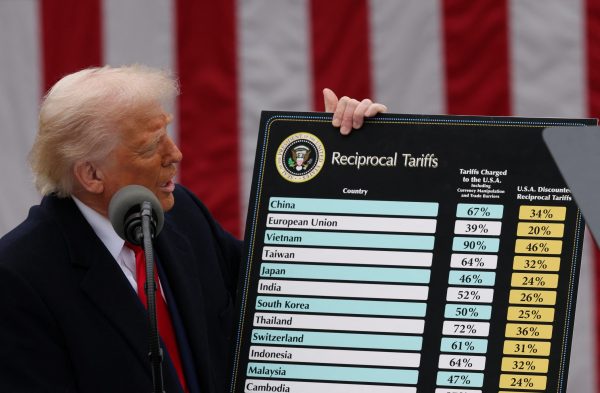
Greece’s finance ministry on Wednesday announced a long-awaited draft bill that foresees the obligatory presence of POS machines – for use by consumers – in a handful of sectors that had up until now been exempted, such as taxis, outdoor fruit and vegetable stands and even insurance providers.
The initiative is part of the center-right Mitsotakis government’s efforts to clamp down on widespread tax evasion and avoidance in the east Mediterranean country, a long-standing scourge dramatically affecting state finances.
According to the draft legislation, beginning in early 2024 previously exempted businesses must possess a functioning POS device for transactions with consumers. Among others, cinemas, street-side kiosks, small single-owner grocery stores, concert venues and even brokerage firms, will have to field and operate POS devices – which must also be electronically connected with their cash registers, another step aimed to combat sales tax avoidance.
The draft legislation cites the obligatory presence of POS devices, not the mandatory use of only e-transactions.
The development comes on the back of an announcement by the finance ministry, according to which more than 221,000 self-employed professionals in the country – occupations ranging from civil engineers to craftsmen – show zero income on an annual basis or even losses.
The draft bill will be presented at the next Cabinet meeting by the finance ministry’s leadership for approval, before tabling in Parliament for ratification.
Uncollected sales taxes alone in Greece are calculated at 3.2 billion euros (17.8 percent of the total) for 2021, due to tax avoidance and fraud, according to a report by the European Commission. The report’s findings render the country in an unenviable third place in terms of sale tax losses, after Romania and Malta.
On a more positive note, according to the Commission, is the fact that the Greek state reduced sale tax losses by 3.2 percentage points year-to-year, as the figure stood at 21 percent of the total in 2020.
According to figures presented this week by National Economy and Finance Minister Kostis Hatzidakis, of roughly 676,000 personal tax codes issued to self-employed professionals in Greece, 37.2 percent declare zero income; 25.5 percent declare annual income of up to 5,000 euros, and only 20 percent declare income exceeding 10,900 euros – the annual tax-free ceiling.
“We’re not going to increase tax rates for the self-employed… the aim is a fairer system that will allow for…fiscal space, thus allowing an easing of the overall tax burden (for all taxpayers), in the long run,” Hatzidakis was quoted as saying.
Other announced measures are the mandatory use of the tax bureau’s e-bookkeeping platform (myDATA), along with specific and automatically filled-out fields on individual online income tax returns for revenues and expenditures.
Latest News

Trump Tariffs Jeopardize Growth: Piraeus Chamber of Commerce
The tariffs, aimed at reducing the U.S. trade deficit, are expected to have both direct and indirect effects on the European economy

EU Condemns Trump Tariffs, Prepares to Retaliate
As tensions escalate, the EU is expected to continue negotiations with Washington while preparing for potential economic retaliation.

The Likely Impact of Trump Tariffs on Europe and Greece
Trump tariffs are expected to negatively affect economic growth in the Eurozone while Greece's exports could take a hit.

Motor Oil Results for 2024: Adjusted EBITDA of 995 mln€; Proposed Dividend of 1.4€ Per Share
Adjusted EBITDA for 2024 was down 33% yoy. The adjusted profit after tax for 2024 stood at 504 million euros, a 43% decrease from the previous year

Cost of Living: Why Greece’s 3% Inflation Is Raising Alarm
Greece appears to be in a more difficult position when it comes to price hikes, just as we enter the era of Trump’s tariffs.

Fitch Ratings Upgrades the Four Greek Systemic Banks
NBG’s upgrade reflects the bank’s ongoing improvements in its credit profile, Fitch notes in its report, including strong profitability, a reduction in non-performing exposures (NPEs), and lower credit losses

Trump to Announce Sweeping New Tariffs Wednesday, Global Retaliation Expected
With Trump's announcement just hours away, markets, businesses, and foreign governments are bracing for the fallout of one of the most aggressive shifts in U.S. trade policy in decades.

Inflation in Greece at 3.1% in March, Eurostat Reports
Average inflation in the eurozone settled at 2.2%, compared to 2.3% in February

Greece’s Unemployment Rate Drops to 8.6% in February
Despite the overall decline, unemployment remains higher among women and young people.

Jerry Kalogiratos Highlights Key Role of Energy Transition and Data Demand in LNG Outlook
Energy transition and the prospects of LNG were discussed at Capital Link’s 19th Annual International Maritime Forum, during a panel discussion with Jerry Kalogiratos (Capital Clean Energy Carriers Corp.)
























![ΕΛΣΤΑΤ: Αυξήθηκε η οικοδομική δραστηριότητα κατά 15,6% το Δεκέμβριο [πίνακες]](https://www.ot.gr/wp-content/uploads/2025/03/DSC9655-2-1024x569-1-90x90.jpg)

















 Αριθμός Πιστοποίησης
Αριθμός Πιστοποίησης